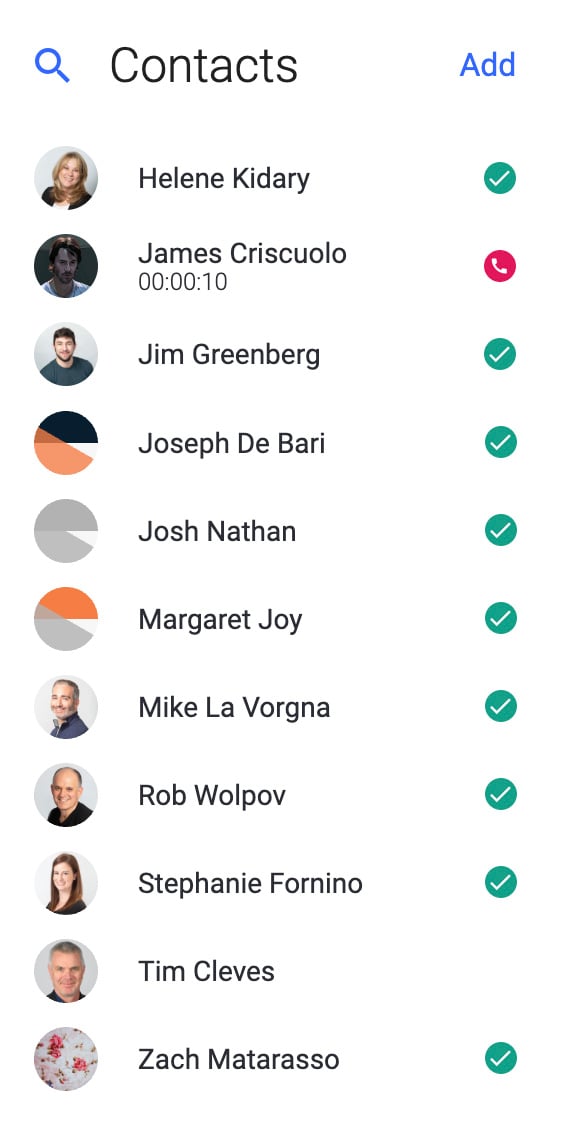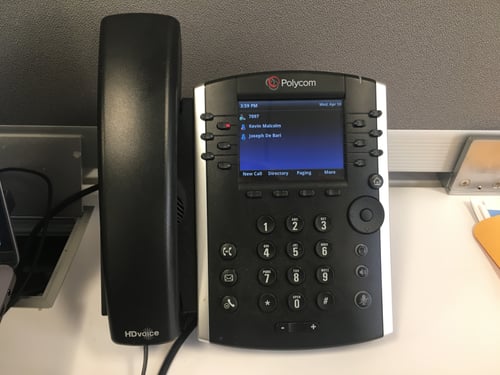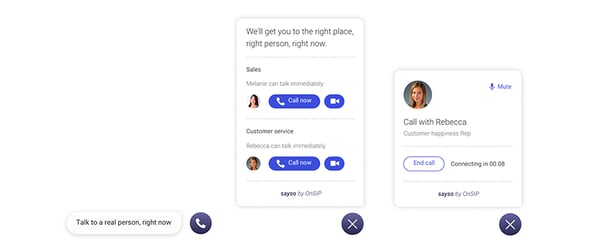The term “busy lamp field” sounds a bit more involved than it really is. Put simply, it just means the ability to see who in your organization is available or not for a phone call at any given time.
Busy Lamp Field Overview
Maybe this analogy will help: You’re in New York City, and you need to flag down a yellow cab. (Let’s pretend Uber isn’t a thing for a minute.) The cabs with their roof light on are available. The cabs with their light off are occupied. If the cab’s roof light is lit up—but not the number, just the words “off duty”—they’re unavailable. Make sense? BLF is much the same, just for office phones: a light indication of who’s available to talk, who’s on the phone, and who’s “off duty” for the moment.
If you’re familiar with the term “presence,” BLF is similar, just specific to phone extensions. So why do you want these flashing lights in your line of sight? They allow you to monitor your coworkers in real time during the workday. Now, before you go all 1984 on us, let us clarify how this isn’t a Big Brother type of monitoring: BLF is a vital tool for anyone whose job relies on phone calls—think sales, reception, or support. Imagine having to physically check if someone was available for a call. Besides being a wildly inefficient way to spend your day, it also means the caller is left hanging on hold for however long it takes you to find your coworker. And what do you do if the coworker in question is in a different office, in a different state, or even in a different country? An active busy lamp field eliminates this problem altogether.
.jpg?width=893&name=What%20is%20a%20Busy%20Lamp%20Field%20(iStock-1060071898).jpg)
So how does this work in an actual office setting?
Take Michael in Sales, for example. He’s on the phone with a customer who has a very specific question that’s best answered by Malcolm. Michael can glance at his OnSIP app screen and immediately see if Malcolm is available, on a call, or logged out at that exact moment. If available, Michael can immediately transfer the customer over to Malcolm. If unavailable, Michael can take a message, send the customer to Malcolm’s voicemail, or suggest another agent who is available.
Busy Lamp Field on Desk Phones: BLF Keys
Whether your main desk phone knowledge comes from reruns of The Office or you use one every day, you’ve undoubtedly seen tiny lights blinking on a panel of side buttons. While each phone is unique in its setup, nearly all desk phones have these buttons—BLF keys—to the side of a small screen that you can connect to various extensions. It’s up to you which extensions you configure on your phone—other lines of your own, the coworkers you call the most, people to whom you tend to transfer phone calls, or even your boss. The BLF keys will show different colors, regularly green and red or orange, based on which extensions are currently in use so that you always have an overview of who’s available.
If you’d like to set up BLF on your desk phone, our Knowledgebase will help you configure the OnSIP specifics. Each phone has its own guide to colors, flashing status, and configuration, so follow the instructions provided by your particular phone model.
.jpg?width=893&name=What%20is%20a%20Busy%20Lamp%20Field%20(iStock-827587320).jpg)
Presence in the OnSIP Softphone App
Most of us here at OnSIP use our desktop app rather than physical phones. Because we have a contacts panel on the left side of the app, presence is automatically shown for everyone. Presence here in the app displays more information beyond just if a contact is on a phone call—A contact can choose an 'Away' status to inform coworkers that they are not available at the moment. And as an added bonus, the app also shows you how long someone’s been on a call. Here’s how your Contacts' presence information displays in the OnSIP app:
- Green: Available
- Orange: Away
- Cerise: Busy
Desk phones have a limited number of BLF keys to configure, so you have to pick and choose which colleagues will be visible to you or constantly switch it around based on daily needs. With the OnSIP softphone, everyone is visible in a single glance.
To give you an idea of how they differ, here’s a comparison view of presence as it appears in the app versus BLF on a desk phone:


How BLF Affects Real-Time Communications
WebRTC is a huge part of telecom innovations right now, and OnSIP is no exception. We’ve launched sayso, a web-based calling solution that lets your site visitors call or video chat straight from any webpage. It’s a fantastic business tool, but we’ll let you read about that elsewhere—this post is all about busy lamp field, after all.
Real-time communication is a wonderful thing, and it wouldn’t be quite as functional without busy lamp field. If sayso couldn’t tell which agents were available to chat, how would it function? Exactly. (We assumed you answered, “It wouldn’t” in your head.) We mentioned above how BLF is simply a phone-specific type of presence—it tells you that a phone is plugged in and can take a call—and certainly the most common form of the feature.
Presence factors into how sayso works but with a few key differences. Typical BLF isn’t quite advanced enough for sayso—it requires a more enhanced form of presence. We designed our proprietary presence system to take the typical BLF “available” status to the next level and instead say, “Yes, this person is sitting at their phone at this exact moment and is ready to take your call.”

Busy lamp field is an integral part of the workday for anyone who needs to call a coworker or whose job description heavily features the word “call.” Whether you prefer a desktop interface or a physical handset balanced against your ear, you should be able to glance at your phone of choice and see which coworkers are available at any time. The name might be a mouthful, but that’s probably why it’s just a visual cue anyway.


